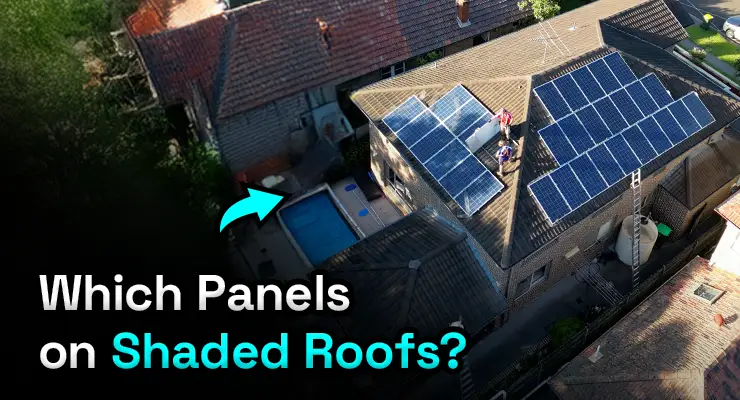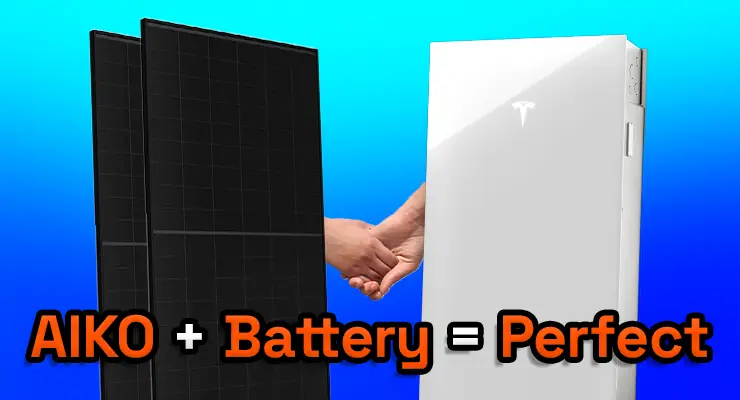Should I Get An Off-Grid Solar System In The City?
Having an off-grid solar system means your property generates its own electricity independently. This allows you to disconnect from the traditional electricity grid. Solar battery banks are a key part of this system. They store unused energy production from your solar panels, allowing you to use it later, such as at night when the panels aren’t generating electricity.
The Role of Solar Battery Storage
Solar battery banks are crucial for off-grid systems. During the day, your solar panels might produce more electricity than you need. Instead of sending this excess energy back to the grid, it is stored in the battery bank storage.
At night or during cloudy days, you can use the stored energy. This ensures a continuous power supply, even when the solar panels aren’t producing energy.
Costs and Payback Periods
The cost of solar battery banks can be high. In cities where the electricity grid is reliable, the extra cost of this system might not be worth it.
Typically, the traditional payback period for an off-grid solar system with batteries is over eight years. In contrast, a grid-tied solar system without batteries has a payback period of around three to five years. If you live in a city, a grid-tied system might be more cost-effective.
Environmental Benefits Of Off-Grid
Going off the grid in the city is a great option if you want to reduce your carbon footprint. These systems are most beneficial in remote areas without reliable grid access. In cities, off-grid systems are best for people who want to contribute to a greener world. By reducing reliance on fossil fuels, these systems help decrease greenhouse gas emissions and combat climate change.
Key Components of Off-Grid Solar Systems
These solar systems include solar panels, a charge controller, batteries, and an inverter. The solar panels generate electricity from sunlight.
The charge controller regulates the flow of electricity to ensure the batteries charge correctly. The batteries store energy for later use, and the solar inverter converts the stored energy into usable electricity for your home. This setup ensures you have a reliable power source, even without access to the grid.
Energy Independence
For city dwellers committed to sustainability, these systems offer energy independence. You won’t be affected by utility rate increases or power outages caused by grid failures. This independence can be particularly appealing during natural disasters or economic instability when the traditional grid might fail.

Advances in Solar Technology
Advancements in solar technology are making these systems more efficient and affordable. New solar panels are now more efficient, batteries last longer, and energy management systems are smarter. These improvements make it increasingly feasible for city residents to live off-grid without compromising their lifestyle.
Modern solar panels capture more sunlight and convert it into energy more effectively, providing more power even on cloudy days. Long-lasting batteries store this energy, ensuring you have electricity when you need it, even at night or during extended periods of bad weather.
Smarter energy management systems also play a crucial role. They optimise how and when your stored energy is used, making sure nothing goes to waste and you always have power available.
Financial Incentives
Despite the high initial costs, there are financial incentives to help offset the expenses of these systems. Governments and local authorities often offer rebates and incentives to encourage renewable energy adoption. These incentives make it more affordable for homeowners to invest in off-grid solar systems.
Making an Informed Decision
When considering an off-grid solar system, evaluate your energy needs, property location, and long-term goals. In cities, the primary motivation for going off-grid might be environmental rather than financial. While the initial investment is high, the long-term benefits include energy security, reduced carbon emissions, and independence from utility companies.
Environmental Impact
For those passionate about sustainability, off-grid systems represent a proactive step towards a greener future. They reduce reliance on fossil fuels and decrease greenhouse gas emissions. By choosing this type of solar system, you contribute to a cleaner environment and a more sustainable world.
Energy Security With Off-Grid
These systems offer a sense of self-sufficiency and resilience, giving you a reliable power source even when the main grid fails. This is especially important in areas prone to natural disasters or where the grid is unreliable. With an off-grid system, you can ensure that your home or business stays powered during outages, providing peace of mind and security.
These systems are very useful in remote areas where it is difficult or costly to connect to the main power grid. Off-grid systems that use solar or wind power can reduce dependence on traditional energy sources. They can also help save money on electricity bills over time.
In addition to reliability, off-grid systems are environmentally friendly. They help reduce carbon emissions and promote sustainable living by utilising clean energy. This can be a significant benefit for those looking to minimise their environmental impact.
Conclusion
Off-grid solar systems have many advantages, including energy independence, environmental benefits, and resilience. While they might take longer to pay off financially compared to grid-tied systems, the environmental and energy security benefits are significant.
For city residents focused on sustainability, these systems are a great way to reduce their carbon footprint and help create a greener future. By thinking about your energy needs, financial situation, and long-term goals, you can decide if this solar system is right for you. As technology improves, it will be easier and more attractive to live off the grid in cities. This will lead to a more sustainable energy future.



